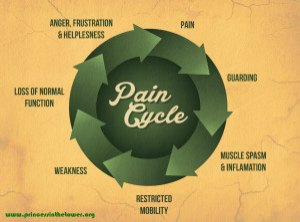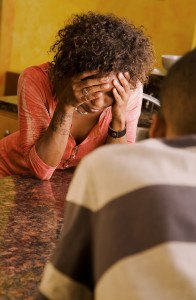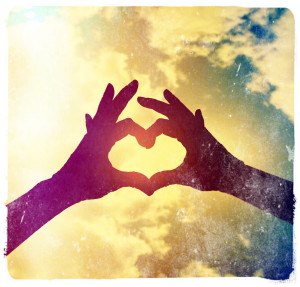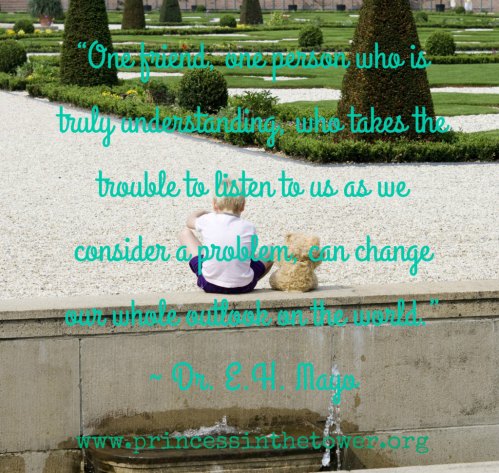Here is a great article on coping with chronic pain and friends / family.
When our lives have been so devastatingly altered by chronic pain and illness, with not a single facet untouched, the support we receive from friends and family becomes all the more essential. But one of the many ironies of a life with chronic pain is that at the very time you need the love and support of those you care for most, those relationships are so often challenged and affected by the same cause of that need.
In the recent pain support survey that so many of you kindly did (*enormous thank you* ~ you can still find the survey here), many report that one of the greatest obstacles is not with our bodies but in relations with those closest to us. Our friendships and connections with family can make the difference between coping or finding ourselves feeling entirely misunderstood, isolated in our pain, by some, even judged for it.
Dealing with this on top of the symptoms can naturally be devastating for pain patients. Yet the lessons of living in pain run deep, and even the darkest times can be illuminated by the slenderest light. This post focuses on the effect of pain on our relations with others and offers a few tips on how to cope.
Changing Relationships
“Chronic illness throws a monkey wrench into our relationships,” says Susan Milstrey Wells, author of A Delicate Balance: Living Successfully With Chronic Illness. “We may seem as foreign to the people who love us as if we had begun speaking a different language. Our family and friends still want us to be the mum who works, the dad who plays baseball in the backyard, and the friend who meets them for lunch.”
“In turn, we want to be treated as the same loving spouse, parent, and friend we always have been. A large part of the responsibility for making those relationships work falls to us. We have to educate our family and friends about our disease, allow them to express their emotions openly, and clearly state our limits and our needs. Also, we have to expect these changes to be unsettling.”
Chronic Pain and Socialising
Planning a social life around chronic pain and illness is hugely frustrating for everyone involved and – for those who are not in it for the long haul – can be swift to dissolve friendships. If you’ve ever known someone who keeps on saying that they want to catch up but never commits, or a friend who is constantly cancelling on you at the last minute, you know how frustrating that flakiness is.
Yet in our ever-erratic, unpredictable illness, our chronic pain can make us mimic that flaky friend to perfection. “On the one hand, we don’t want to over-commit to others and then have to cancel. On the other hand, we don’t want to unnecessarily isolate ourselves too much,” says patient, advocate and author of How to Be Sick: A Buddhist-Inspired Guide for the Chronically Ill a..., Toni Bernhard.
“This constant need to assess what’s best for us to do is hard and exhausting work. In the end, because of the uncertainty of our symptoms, most of us must simply make an educated guess and hope for the best.”
Never Knowing How We’ll Feel
The ongoing uncertainty about how we’ll feel each day makes planning impossible. “It’s hard to make plans because we can’t be sure how sick we’ll feel or how much pain we’ll be in on any given day. Even after I’ve woken up, I don’t know how I’ll feel as the day progresses because my symptoms can flare at any moment,” says Toni Bernhard.
“In addition, resting for days in advance of a commitment doesn’t assure that I’ll feel okay when the day arrives. It took me a long time to even be able to begin to make peace with the uncertainty of my symptoms. It’s an ongoing challenge, that’s for sure.” Some pain patients also feel that others expect too much from them, so believe they are letting them down in some way if they can’t keep up, which leads to more unhelpful thoughts.
Cancelling at the Last Minute
Just as others are perplexed by the fluctuation in symptoms, especially the speed with which a flare can transform us from being happy and engaged with someone,..., we too are equally perplexed. We can do everything within our power and planning to see our loved-ones but there are times when it simply does not help, or the pain flares so viciously, we are entirely powerless in controlling it.
Only you know which decisions to make to best manage your symptoms. If you are unable to do something or have to change plans you’ve made with friends, it’s important to communicate this but don’t feel obligated to give long explanations or grand apologies, though I know that is natural. We obviously feel bad, sad, and upset but the subsequent guilt at letting another down will only serve to depress you.
One Event = Whole Day’s Preparation
A single event, such as seeing a loved-one means our entire day is built around that event. From waking-up, everything is considered and for many of us, we cannot do anything we want to before the event as it jeopardises it. So when we do have to cancel, it’s not just the event but an entire day wasted, us in pain, yet we were never able to even see that friend. This is frequently ignored, especially by those who get annoyed at us for being in pain and needing to cancel.
It’s complicated as we long to socialise, to see those we love but the depth of understanding needed to truly comprehend the constant evaluation, uncertainty and ongoing management of our pain, is only grasped by a select few. These friends are perhaps the finest of all as they do not get angry or feel put out if we must cancel at the eleventh hour, nor do they mind it if our plans are cut short because they understand that we are doing everything we can. It just doesn’t always go to plan.
Evaluating Everything
When you look perfectly healthy but cannot participate in activities such as a short walk with friends or a party, explaining why is often difficult and always tiring. We naturally become exhausted explaining over and over why we cannot partake.
It also breaks our hearts when we keep having to explain that we’re not able to do something that we would truly love to, even if it was ‘just’ a walk with friends or a drive in the countryside. Though of course there is no ‘just’ about it when for the most part, you are stuck indoors because of your pain and illness.
Living with chronic pain and illness involves a constant evaluation of the impact that various activities might hav..., fatigue, and other symptoms. This painstaking (pardon the terrible pun), and meticulous pacing often requires difficult choices about whether or not to engage in an activity that others do without a second thought.
Not Knowing How to Act Around Pain
“We may lose friends because we can no longer share a sport or hobby with them, or because we don’t seem to be as much fun as we used to be,” says Susan Milstrey Wells. “Sometimes our friends just don’t know how to act around us when we are ill.”
Being so misunderstood by loved ones and losing the intimacy once shared in formally close friendships naturally hurts. Human beings are social creatures. Our sense of who we are and our place in the world is forever influenced and redefined by the nature and quality of our interactions and relations with others. Yet chronic illness inevitably changes relationships.
Sensory Overwhelm and Brain Fog
Another aspect of socialising with pain that becomes difficult, even impossible is trying to interact when the pain rises because of sensory overload and makes it impossible to think. The more people in the room the greater the stimulus on your nervous system, and consequently, your pain.
While you are trying to listen, engage, think of your responses too, any additional noise, people, and especially music can make brain fog and sensory overload exacerbate, making it painful physically and emotionally. The desire to have and maintain closeness in friendship and family is sadly made all the more impossible because of the very symptoms that thwart it.
Many pain patients, especially those with severe pain conditions that mostly leave them house-bound, naturally struggle to see, speak to, or socialise anything close to what we long to. Though it’s humble compensation, when we do connect, it does make it all the more wonderful, Skype too, is a beautiful means for those with pain to see their friends and chat.
Being Treated Differently
When you have an illness that is so hard for others to understand, others may treat you differently. Even those who fully support us can change in how they relate to us. We want to be treated as whole people, and adults, not ’the one with pain’ but may be treated like shadows of our former self, exclusively defined by our pain or illness, or worse as dependant children.
“I’ve had people talk to me as if I’m a child. There’s a word for this frustrating phenomenon: infantilization. The unpredictability of how we’ll be treated by others can be extremely stressful,” says Toni Bernhard. “Will they understand that chronic illness hasn’t turned us into children? Will they speak to us in a pitying voice? Will they shy away from meaningful interaction altogether, as if we’re contagious?”
Toni offers two strategies for handling this particular uncertainty: “First, I reflect on how even well-intentioned people may behave unskillfully for reasons related to their particular life history and their cultural conditioning. This helps me not to take their behavior personally. Second, I remind myself that, despite this illness, I know in my heart that I’m a whole and complete person; then I re-commit to making sure that’s good enough for me.”
Talking About Our Pain
If we talk about our health problems, loved-ones may respond judgmentally yet in keeping quiet about our health issues, or the severity of the pain and symptoms, perhaps even acting ‘healthy’, we risk leading others to misunderstand what we can and cannot do. Additionally, by keeping quiet, we’re also passing up the possibility of receiving much-needed support, emotional and practical.
“How much you talk about your pain and other difficulties is a personal matter, affected by your personality, the situation, your culture, and the personalities and cultures of others in your life,” says Lynette Menefee Puiol, Ph.D. “For example, some friends might think it is not polite to ask how you are doing, while others think that not asking indicates that they don’t care.”
“There is a delicate balance between sharing enough so people will understand, and knowing that talking about your pain has a negative effect on relationships,” adds Lynette, who suggests having a ‘script’ prepared when you don’t want to say much, such as, “I don’t like to discuss the details, but thanks for your concern.” Instead of talking, some pain patients use a sign or a number system to communicate when pain flares-up or it is particularly difficult to speak.
Exceeding Limitations
The nature of invisible illness and our fluctuating symptoms can lead to an equally fluctuating level of support. Since others cannot see our pain, sometimes even those closest to us find it hard to believe that someone who looks healthy can have so many severe symptoms and limitations. We may be misunderstood or expected to exceed our limits by even those we love the most, no matter how much we explain that we cannot.
This of course is hurtful emotionally as well as physically if we do go over those limits. Yet sometimes even those we think understand show they do not. We might try to ‘keep up’ only to pay for it so dearly later but of course the flare-ups and recoveries are as hidden as our pain is. So that side of living in pain is also so vastly misunderstood, which can also affect friendships and relations with family.
Unpredictable Symptoms
Everyone with painful neurological conditions and invisible illness knows how tricky it is to manage our unpredictable symptoms and limitations but just as we struggle with it, our friends and family may think we are exaggerating our pain or mismanaging it, which may strain in turn friendships and relations with family.
Loved-ones who see us ‘able’ to carry out activities, though obviously oblivious to how painful these actually are, are then confused by our need to rest and recover, or allow that invisible pain to lessen. Oblivious to the pain involved, aftermath, or inability to repeat that activity, this creates doubt and may lead to their questioning of our pain, in turn affecting the closeness and connection in our relationships and friendships.
The swift climb from ‘normal’ pain to being entirely unable to speak because of a flare can also be perplexing to others. Of course not everyone reacts in this way. Some friendships are deepened through our illness and pain but if we are judged on something that is so out of our own control, it naturally makes us feel even more isolated, especially as the reality is so beyond the scope of our loved-ones’ own experience and therefore understanding.
Changing Needs, Changing Relationships
The world of the chronic pain patient, no matter the cause, shares the need to be understood. We don’t want pity but understanding. Not sympathy but empathy. When friends and family change how they respond to us it can make life with pain even more difficult. Even if initially our loved-ones respond with kindness and concern, that may change as time passes and we don’t ‘get better’.
Another way our relationships change is that we may rely on others in new ways, something that can be difficult to acknowledge even to ourselves, let alone in communicating those needs to others. We may feel embarrassed, flawed, or inadequate because of the pain. It’s natural to worry that others may be resentful of our needs because of disability and pain but that frequently leads to those needs not being met.
Compassion Fatigue
Sometimes our friends and family are there for us only to slacken that support when things don’t improve. They may become frustrated in their role if they are a caregiver or a family member, or simply misdirect their own feelings about your illness at you, which is always hard. Your friend you went out every week with is fed-up of waiting, or your family stops asking how you are.
When even those you thought supported you get compassion-fatigue, or grow a little clipped or angry at you ‘never getting better’, take comfort in your own inner strength and remember that new people do come into your life, online and in person, especially now with so many online support groups.
Distance from Illness and Pain
Watching a loved one struggle with pain often makes others feel helpless and uncomfortable. They may also be experiencing fear, disappointment and loss. These emotions can be powerful motivators. It hurts for us, of course it does, but denial can be their own means for coping, how ever hurtful that is to us. They may simply feel too uncomfortable to acknowledge our pain and ill-health.
Some reactions are also often complicated by feelings of guilt for being healthy and able to walk, run, get out, or simply unable to share aspects of their lives that they know you can now no longer be a part of. Remember that others have their own challenges and lives to lead, that everyone has their own battles to face but above all, keep in mind that others’ reactions usually have far more to do with them than with us.
Letting Go
I used to have a friend who was one of the kindest you could hope to meet. Yet when CRPS began, although the initial reaction was one of concern and compassion, the distance was evident. That grew to increasingly infrequent visits, until it became all too apparent that the pain made them too uncomfortable (as ironic as that sounds to us in pain). Their need to create distance was as they could not deal with it, and many people cannot. Illness, as perpetuated by our youth and health-adoring society, doesn’t sit well for many.
While some relationships are deepened by the challenges of chronic illness, we may need to accept that we must let others go. Letting go is a part of life but with chronic illness and pain that teaching acquires a whole new depth. Of course it hurts if someone you love leaves but for your sake, letting go is often the most healing action you can take. Just as our lives shift and evolve, we too change and grow, so do the people we share it with. Instead of focusing on the heartbreak of losing loved-ones to your chronic pain and mystifying illness, let go, have compassion for yourself, them too in letting go, and know that new friends do appear.
Self-Compassion
“Ultimately, as we strike a delicate balance between our own needs and the demands of our most important relationships, we grow in self-awareness, creativity, and acceptance,” says Susan Milstrey Wells. “We can’t be sick successfully without learning to love ourselves, and when we accept our own limitations, we’re much more likely to let those around us be less than perfect too.”
Self-compassion attains a whole new height when it comes to living with chronic pain and illness. We are so frequently hardest on ourselves, and when we lose those we love, all the harder. Sometimes that loss, that separation from friends we considered for life can lead us to this dark and lonely place.
Remember that you are doing your best, you are dealing with incredibly difficult circumstances so be kind to yourself. Speak to yourself as if you are a friend of yourself, without judgement, without criticism, without drama. Having self-compassion means to fully be with yourself in awareness, much like a good friend, with the willingness to be a loving companion to your own pain.
Self-compassion also brings care and concern for ourselves; warmth, love, and kindness for our challenges too. It’s a gentleness within you that permeates with acceptance, unconditional love and intimate understanding. As author and Eastern teacher, Jack cornfield said, “If your compassion does not include yourself, it is incomplete.”
Finding Friends in the Spoonie Community
One way to cope with the ongoing challenges is to make friends with others who truly understand those that you face, on a day-to-day, moment-to-moment basis. Finding others who are suffering with similar symptoms is nourishing and connecting with others who live with chronic pain can provide much comfort. Although they may have a very different illness or condition to your unique combination, they have the ability to be empathetic, encouraging, and a great source of support precisely because of their direct experience.
Yet just as the night is darkest before the dawn, so too can the sadness in our lives be lifted by new people who come into our lives. If you are reading this after being recently diagnosed and fear the loss of friends, take heart in the fact that so many new people will come into your life; brave, inspiring, beautiful, compassionate people.
Some feel their friendship circle actually expands after a diagnosis, or, perhaps more vitally, if you reach out to others in pain online, or in support groups. The capacity for human connection is something that even chronic illness and pain cannot take away.
http://princessinthetower.org/how-chronic-pain-affects-your-friends...














